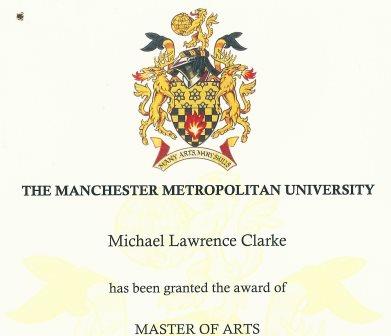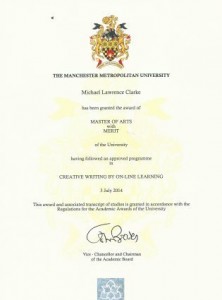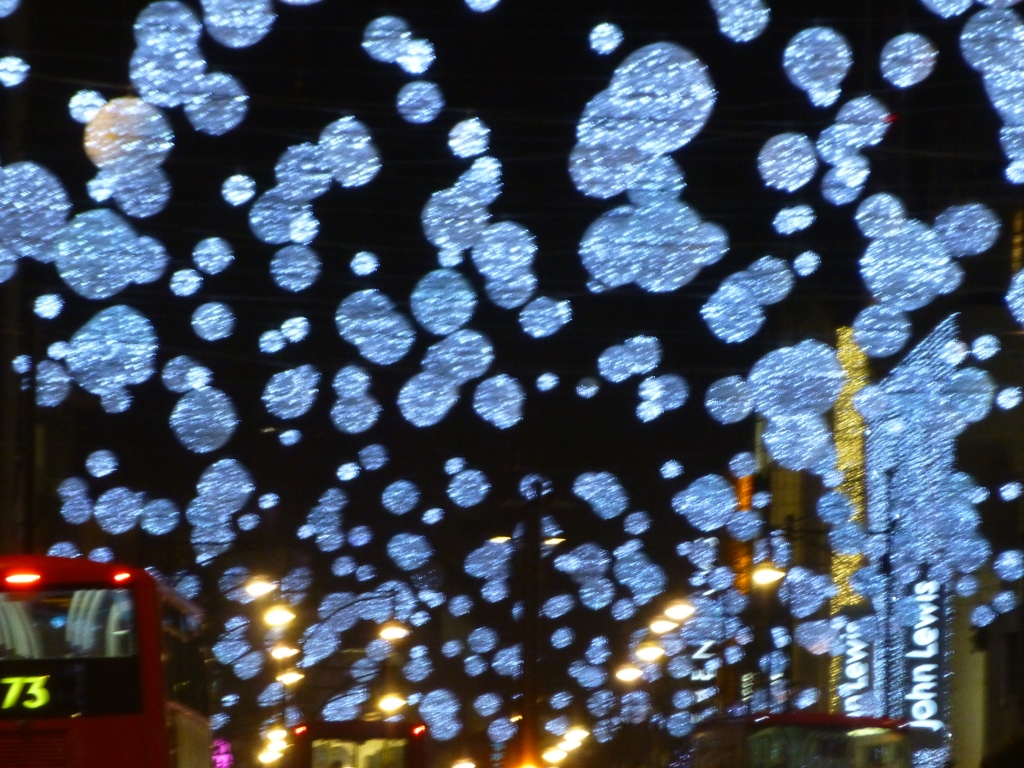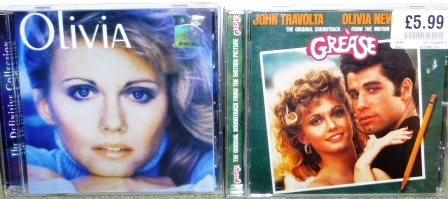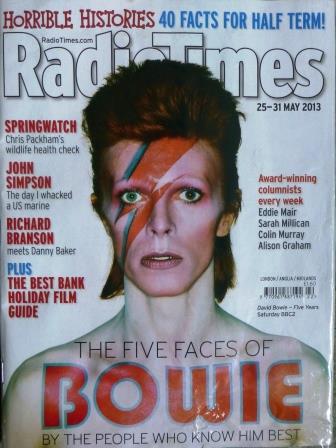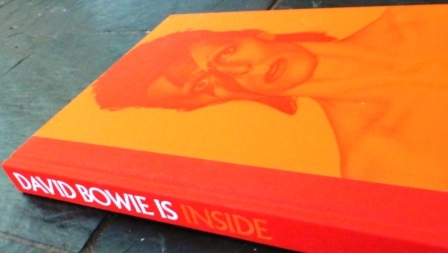I read a beautifully written guest post recently on Isabel Costello’s blog The Literary Sofa. It was by Antonia Honeywell whose novel The Ship was published earlier this year and was one of Isabel’s picks for 2015.
The post describes her perseverance in continuing to write novels when they failed to find a publisher, even though the second book was picked up by an agent, who also represented the third. She makes the analogy between writing the novels and children’s sandcastles on a beach — impermanent structures that will inevitably be washed away by the tide but we are still somehow compelled to construct them. She makes the point that the enjoyment of the act of creation itself is fulfilling — the results aren’t expected to endure.
One reader commented that after reading the post he was glad he’d stuck to writing short stories and not novels! And the post has been written from a point in time where Antonia has been able to celebrate the publication of her debut novel, although it appears to be the fourth she’s actually completed.
But the post resonated with many others who commented and makes the point that such is the effort and discipline required to achieve publication (with Antonia’s fourth time success being more typical than the lucky first-time novelist) that it’s essential that anyone who sets out on a major writing project enjoys the process of writing itself because that might have to sustain you for a long time. (I’m sure this is a factor behind writers seeking out courses, writing groups and the likes — because these can give affirmation about your writing from a reader’s perspective, albeit a very different one to that of either the book-buying reader or an agent or author.)
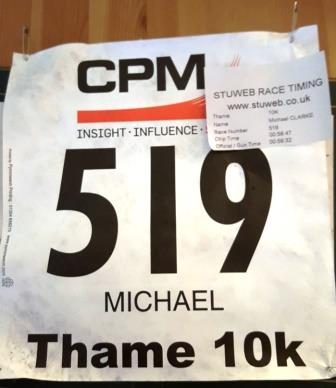
As the photograph above suggests, I often apply a more conventional metaphor to the writing process than washed-away sandcastles — long-distance running.
At the weekend I ran the Thame 10k race. It might just be possible to see my not very impressive time of 58 minutes 47 seconds on the timing slip on the photo — but I completed it in under an hour, which was my modest objective. I’m hoping for a similar pace at slightly more than double the distance in ten days time when I enter the Wycombe Half Marathon for about the fifth or six year running (if you excuse the pun).

Earlier in June I competed in the most lunatic and masochistic race — the 6k Coombe Hill run — which is apparently the only fell race in the south of England. Like the Thame and Wycombe races, this isn’t a fun run, it’s officially licenced by UK Athletics and organised by Aylesbury Vale Athletics Club.
The race starts with a solid mile of running up the Ridgeway on a gradient of about one in ten, although it’s steeper in places. Then after a steep descent the runners have to scramble up a 190m near-vertical climb (some people use their hands as well as feet) to the top of the Chiltern Hills highest viewpoint — the war memorial on the top of Coombe Hill. It’s as far removed from a running track as is imaginable and overlooks Chequers.

I once bumped into David Cameron doing the Sport Relief Mile at a local sports club. I’d rather enjoy seeing him huffing and scrambling along if he decided to enter the race held closest to his weekend country pile.
I managed to drag myself around that course, having been persuaded to do it by the postman, who’s involved in the club that organises it! Like a Home Counties Everest, I did it because it was there. It wasn’t quite as gruelling as I expected. Not knowing the course and fearing the worst, I paced myself on the long uphill too cautiously, trying to leave something in reserve. I didn’t need to call on it in the end — but it was still bloody tough. (Is there a writing metaphor in there somewhere?)
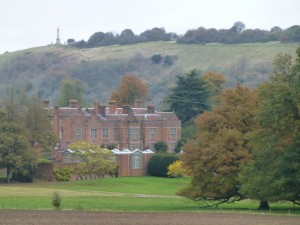
I tend to amble along towards the end of the field in these races. I must be reasonably fit to complete the distances but I ‘m not a natural distance runner. Like James in my novel, I’m physically built more like a rugby player (though more of a back than a forward!) than a rival to Mo Farah — and that’s without the evidence of enjoying too much good food and drink that I carry around my waist to a greater or lesser extent depending on how virtuous I’ve been recently. But there’s something about running that seems to resonate with writers.
I’ve read many articles, interviews and blogs where writers reveal that they’re keen runners (Claire King’s blog entry has particularly stuck in my mind).
One thing writers appreciate is the solitude of running (except if, like me, you occasionally scramble up a hill where you almost need to use handholds with a couple of hundred others).
It’s a different solitude to sitting in front of a computer typing away. It engages you with the outside world but in a slightly removed, distant manner that appeals to writers: you’re passing through, observing, watching, experiencing the sounds and smells and, if you’re running at any sort of pace at all, physically connecting with the environment in an intense way.
You’re breathing in huge lungfuls of air, so being at one with the weather (warm, freezing, humid, wet) and acutely aware of the ground under your feet — the sapping hard stone on the Victoria Embankment or the wonderful bounce from the soil on a Chilterns footpath that’s been drying in late Spring.

As I’ve said, I’m almost embarrassingly poor as a competitive runner, but I drag myself out in my trainers because some runs can be so pleasurable they verge on transcendent experiences. I remind myself how lucky I am to be able to run through fields full of wildflowers and butterflies, a slog up a steep hill being rewarded with amazing views as far as the Cotswolds.
I try to fix these moment in my memory as a moment to remember, a reminder of how precious it is to be alive in that second and be grateful that I’m fit enough to experience it.
And its not just running through countryside that can be exhilarating. I’ve been fortunate enough to use a gym in the bowels of a prominent building in Westminster. I’ve often emerged from there in my running gear to do circuits of the Royal Parks (from St. James’s via Green to a loop around the Serpentine in Hyde Park and back) and to run along the river from Westminster Bridge up to the Millennium Bridge (or Tower Bridge if I’m really energetic) back along the South Bank. That’s an incredible way to get different, slightly detached perspective on London and an amazingly concentrated piece of sightseeing.
For a writer, running gets you away from the desk and out into a different environment with new stimuli and the thinking time it imposes can be invaluable. Characters, plot ideas, ways of resolving problems can all be reflected on without any feeling of compulsion to get something down on the page.
Sometimes this freedom becomes a bit worrying — when I’ve come up with some idea I like about 3km into a 10km run I become paranoid that by the time I’m out of the shower it’ll have disappeared from my mind.
And sometimes I’ll use the undisturbed time on my own to indulge in something that demands my mental concentration but not any physical presence — listening to The Archers’ omnibus and Desert Island Discs on a Sunday morning run is a particular pleasure.
But above its practical benefits, I’m sure writers appreciate running as a metaphor for the process of creating their work. The analogy works at several levels. Both are usually solitary activities and they need self-discipline and determination to be applied to reach a goal — finishing the section, chapter or book and completing whatever distance you choose to run.
In training you’re usually running against self-imposed targets: try to run under a 10 minute mile or complete a 10k in under an hour is like achieving a target word count (although with writing there’s little danger of being stranded miles from home if you don’t make it). Even in a race, you tend to compete against personal targets (your personal best — PB) rather than try to outrun everyone ahead.
It’s difficult to motivate myself to get going with either writing or running (the infamous displacement activities, like filling the dishwasher, often suddenly demanding priority) but, once started, I realise how much I enjoy both. Writing has the edge here as it’s not quite so physically demanding. (Unlike running, energy can be restored with a cup of strong coffee — as happened last week when I was working to a deadline so intensively that I stayed writing until 4.15am — when I got up from my computer the sky was becoming light.)
Running has its downsides as exercise. While it has cardiovascular benefits (my resting heartbeat is reassuringly low), it hammers other parts of your body. I’ve had tendonitis, an MRI scan on a knee (fortunately revealing nothing worse than normal wear and tear) and a number of accidents. Last autumn I tripped while running the Ridgeway near the Whiteleaf Cross and hurtled into a bed of exposed flint. Fortunately I was able to run home, albeit covered in blood and dirt and nursing a broken thumb, which was in a splint for the next six weeks.
Luckily, writing isn’t so physically dangerous but it can be just as brutal in terms of its demands on free time and the sacrifices required to embark on the huge task of writing a novel — the Coombe Hill race with its ‘climb the biggest hill the hardest way possible’ ethos is an apt comparison.
The different distances in running offer up parallels. Maybe a short poem or a piece of flash fiction is like running the 100m? The short, intense product of a lot of training. A short story might be more middle distance — 800m perhaps — with elements of the long haul but still speedy.
A novel is pure marathon. Metaphors abound. Consider the gruelling preparation, the need to hang in there for long haul when every sensible muscle in your body wants to stop, the inevitability of hitting ‘the wall’ — yet all these masochistic hardships are forgotten in the glow of satisfaction of achieving the goal. (I have to imagine this as, despite entering the ballot for London several times, I’ve never run a marathon but I’ve done several half-marathons, which are pretty tough.)
And the process of getting your writing published stands comparison with running a long, tough race. Some people don’t enter, despite having the ability to complete. Some shoot off ahead: maybe they succeed quickly; maybe they burn out with exhaustion. Others, having started, calculate the effort isn’t worth the reward and withdraw.
Sometimes the course is uneven — a steep downhill slop where you pick up speed and think you’re rushing ahead is followed by a lung-busting, leg-trembling climb that leaves you wondering why on earth you chose to put yourself through this ordeal in the first place. But with friends and bystanders cheering you on, offering moral support, you pace yourself — discover the limits of what you’re able to put into the race, dig deep and realise you’re still enjoying it.
As happens in the Wycombe Half Marathon, you might pass very close to the finishing line but then be directed away for a further agonising stretch before you turn into the last straight but with the finishing line appearing to be way in the distance. But if you keep on moving, you’ll keep on closing in. If you stop you’ll never make it.
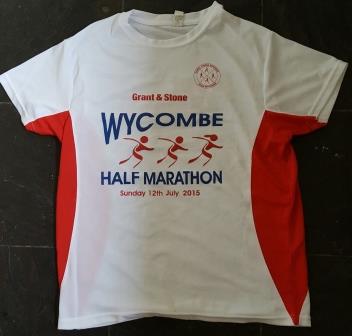
Update: 12th July 2015
As mentioned above, I entered the Wycombe Half Marathon this year, as I have for the last five years or so. It’s a course for masochists as it has a huge hill right at the start (up through Wycombe Abbey).
Running the race today, I had plenty of chance to put my ruminations on perseverance into practice. I’d run a relatively comfortable race at a slow(ish) but achievable pace (on course for a finish between 2hrs 10 and 2hrs 15) when at the 8 mile stage I felt a sharp pain on my forehead. I’d been stung by some sort of insect. I tend to react badly and unpredictably to insect stings and bites and I was worried enough about an adverse reaction to run back to the water station and ask a marshal if I could be checked by the first aiders.
At one point they wanted to take me to the minor injuries unit at Wycombe hospital but I managed to get seen by the St. John Ambulance people instead. I didn’t seem to have any bad reaction apart from the sting itself so they gave me an antihistamine tablet. This all took so long (I had to fill in forms and so on) that the last runners were just passing as I finished. I was given the option of a lift back to the finish but I decided I’d carry on running and try to complete the remaining five miles — as the last runner in the race. I managed to catch a few of the other runners so didn’t have the ignominy of finishing last and I even managed a little surge at the finish to beat the 2hr 40 mark by a few seconds. Then it was into the St. John Ambulance medical tent to be checked over by the nurse.
‘Are you feeling short of breath?’
‘Well, no more than usual after running 13 miles!’

